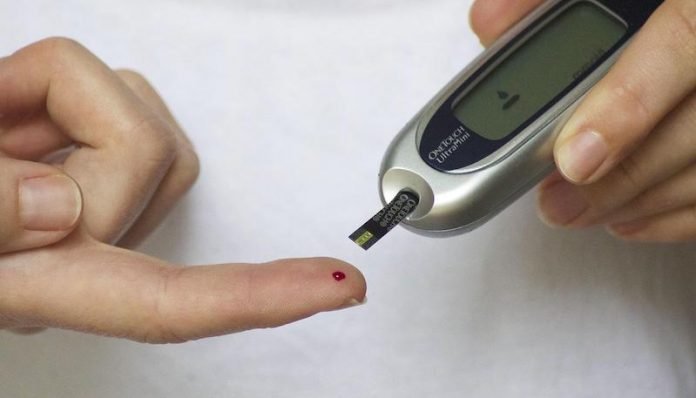
Having diabetes means you are more likely to develop heart disease.
People with diabetes are also more likely to have certain risk factors, such as high blood pressure or high cholesterol, that increase their chances of having a heart attack or a stroke.
If you have diabetes, you can protect your heart and health by managing your blood glucose, also called blood sugar.
You can also protect yourself by controlling your high blood pressure and high cholesterol. If you smoke, get help to stop.
What is the link between diabetes, heart disease, and stroke?
High blood glucose from diabetes can damage your blood vessels and the nerves that control your heart and blood vessels. Over time, this damage can lead to heart disease.
People with diabetes tend to develop heart disease at a younger age than people without diabetes. Adults with diabetes are nearly twice as likely to have heart disease or stroke as adults without diabetes.
The good news is that the steps you take to manage your diabetes also help lower your chances of having heart disease or stroke.
What else increases my chances of heart disease or stroke if I have diabetes?
Your risk for heart disease is greater if you are male rather than female, whether you have diabetes or not. If you do have diabetes, other factors add to your chances of developing heart disease or having a stroke.
Smoking
Smoking raises your risk of developing heart disease. If you have diabetes, it is important to stop smoking, because both smoking and diabetes narrow blood vessels.
Smoking also increases your chances of developing other long-term problems such as
lung disease
lower leg infections and ulcers
foot or leg amputation
High blood pressure
If you have high blood pressure, your heart works harder to pump blood. High blood pressure can strain your heart, damage blood vessels, and increase your risk of heart attack, stroke, and eye or kidney problems.
Have your blood pressure checked regularly and work with your doctor to control or lower high blood pressure.
Abnormal cholesterol levels
Cholesterol NIH external link is a type of fat, produced by your liver and found in your blood. You have two kinds of cholesterol in your blood: LDL and HDL.
LDL, often called “bad” cholesterol, can build up and clog your blood vessels. High levels of LDL cholesterol raise your risk of developing heart disease.
HDL is sometimes called “good cholesterol.” Higher levels of HDL is linked to lower risk for heart disease and stroke.
To improve LDL and HDL levels, limit the amount of fat in your eating plan, eat more plant-based foods, and get regular physical activity.
Another type of blood fat, triglycerides, also can raise your risk of heart disease when the levels are higher than recommended by your health care team.
Obesity and belly fat
Being overweight or having obesity can make it harder to manage your diabetes and raise your risk for many health problems, including heart disease and high blood pressure.
If you are overweight, a healthy eating plan with fewer calories and more physical activity often will lower your blood glucose levels and reduce your need for medicines.
Excess belly fat around your waist, even if you are not overweight, can raise your chances of developing heart disease.
You have excess belly fat if your waist measures
more than 40 inches and you are a man
more than 35 inches and you are a woman
Chronic kidney disease
Heart disease is closely linked with chronic kidney disease, a condition in which your kidneys are damaged and can’t filter blood the way they should.
Having diabetes is a risk factor for developing kidney disease, which affects about 40% of people with diabetes. Other risk factors for developing kidney disease are high blood pressure and a family history of kidney failure.
If you have risk factors, get tested for kidney disease and protect your kidneys by making healthy food choices, being more active, aiming for a healthy weight, and managing health conditions that cause kidney damage.
Family history of heart disease
A family history of heart disease may add to your chances of developing the condition.
If one or more of your family members had a heart attack before age 50, you have double the chance of developing heart disease compared with people who have no family history of the disease.
You can’t change whether heart disease runs in your family. But if you have diabetes, it’s even more important to take steps to protect yourself from heart disease and decrease your chances of having a stroke.
Sign up for our newsletter for more information about this topic.
If you care about diabetes, please read studies about how to cure type 2 diabetes successfully, and this is the key to reducing cancer risk in obesity and diabetes.
For more information about heart disease, please see recent studies about plastics linked to heart disease and high cholesterol, and results showing eating nut daily may lower bad cholesterol, reduce heart disease risk.



